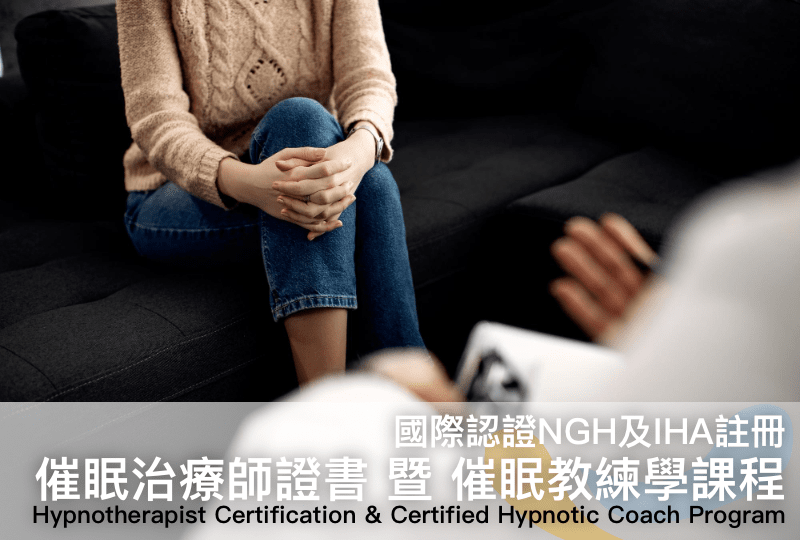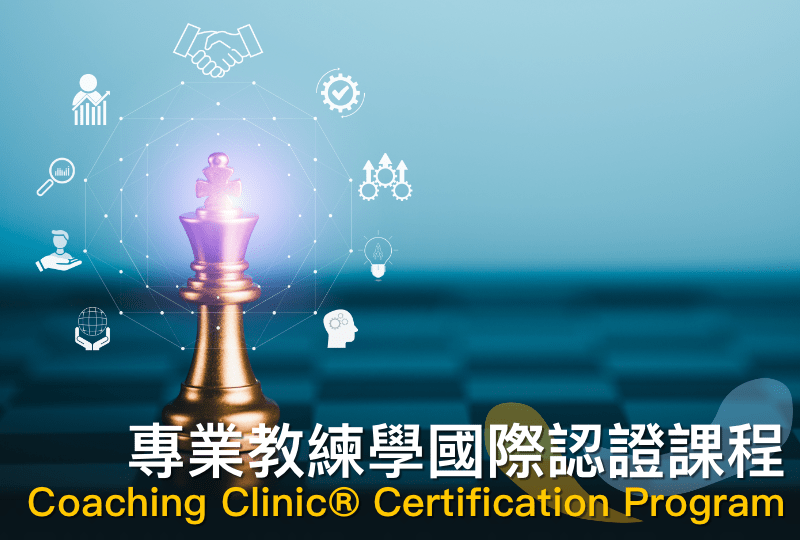
CER02 - Hypnotherapist Certification & Certified Hypnotic Coach Program
Course Introduction:
Do you want to help others help themselves, improving issues like stress, stage fright, phobias, insomnia, anxiety, tardiness, obesity, smoking, and more? Do you wish to recall past memories and instantly feel confident? Do you seek happiness and tranquility through deep self-exploration? Do you dream of a spiritual journey around the world? Do you want to enhance interpersonal relationships and build rapport? Do you aim to improve your speaking charisma and become a social expert? Are you curious about the principles of hypnosis and eager to gain a professional knowledge and lifelong skill? Do you want to apply hypnosis in everyday life, with plenty of real-life stories? Are you looking to obtain an international professional certification to enhance your career prospects? Do you plan to immigrate and want to increase your job opportunities abroad?
Course Information:
Upon becoming a registered hypnotherapist, you will be able to:
- Provide individual therapy and coaching services to clients, addressing issues such as anxiety, insomnia, obesity, smoking, and career planning.
- Conduct workshops for corporations, non-profits, or through self-enrollment on topics like self-hypnosis, stress reduction, and hypnotic communication.
- Use the professional title "CH" (Certified Hypnotherapist), e.g., Mr. David Chan, CH.
Why Choose NGH?
The National Guild of Hypnotists, Inc. (NGH) was founded in Boston in 1950 and has over half a century of history. It is an international non-profit educational organization and the oldest and largest registered hypnotherapist organization globally.
Provided by NGH:
- Free public forums for sharing knowledge and information about hypnosis.
- Comprehensive training and continuing education programs. Once certified as a Registered Hypnotherapist, you can further advance to become a Registered Hypnosis Instructor or specialize in areas such as hypnotic childbirth, weight control hypnosis, and adolescent hypnosis.
- Regular publications including The Journal of Hypnotism and The Hypno-Gram, the first global publications in the field of hypnosis.
- Annual global hypnosis seminar, the NGH Convention & Educational Conference.
Become a Permanent Member of IHA:
Our accredited Pediatric Hypnotherapist course has been recognized by the International Hypnosis Association (IHA) as the first "Pediatric Hypnosis Professional" certification in Asia. Graduates will receive the IHA-recognized Pediatric Hypnosis Professional Certificate.
The International Hypnosis Association was established in the 1960s and is an internationally recognized independent professional certification body with regional advisors in France, China, Malaysia, Brazil, and Serbia. The IHA focuses on the certification and ethical standards of hypnotherapists, hypnotists, and NLP practitioners, offering various specialized hypnosis certifications such as pediatric hypnosis, stress relief hypnosis, smoking cessation hypnosis, weight loss hypnosis, and pain relief hypnosis.
Provided by IHA:
- Continuing Education Resources:
- Offers members learning resources and standard documents based on the development of hypnotherapy, and access to a member account to interact with the international hypnotherapy community.
- Practice Support:
- Provides an online service for clients to search for hypnotherapists by region, and offers practice consultation and necessary document templates.
CIC Recognized Facilitator: Cambridge International College (CIC), established in 1935, has over 80 years of history, with 35 branches in 24 countries and regions, offering over 100 courses and holding various global accreditations, including:
- The British Institute for Learning and Development, EDI (Education Development International)
- The International Association for Distance Learning (IADL), the Institute of Leadership & Management (ILM)
- Evaluation & Accreditation of Learning Providers (EALP)
- National Accreditation Board, TEVETA
- BILD Quality Mark - a registered UK Learning Provider (UKRLP)
- The Department for International Development (DFID)
Facilitator - Hypnosis Coaching Professional: According to the world's largest talent development association, the Association for Talent Development, a facilitator is defined as "Facilitation in the training field refers to the work of the person or trainer who guides or makes learning easier, both in content and in the application of the content to the job."
Hypnosis coaching encompasses resolving conflicts, advancing decision-making processes, motivating and removing obstacles, identifying personal resources, and promoting effective personal and career growth. Therefore, the facilitation techniques in hypnosis coaching are broadly applicable in therapy, work, and everyday life.
About Facilitators (Hypnosis Coaches)
Why is there an increasing demand for facilitators (hypnosis coaches)?
Training: Whether it’s kindergarten teachers, university professors, corporate trainers, or public course instructors, all should master the skills of a facilitator (hypnosis coach). During the knowledge-sharing process, these skills help learners stay motivated, apply techniques quickly, and foster a positive mindset towards learning and application. This ensures that training extends into and integrates with daily applications.
Management: Applying facilitator (hypnosis coach) techniques in motivation, meetings, performance evaluations, and other management activities helps team members enhance their motivation and self-monitoring, establish an open and growth-oriented team atmosphere, and anticipate and address team obstacles early. This synchronization of team member growth with organizational performance is beneficial.
Interpersonal Relationships:
Facilitators (hypnosis coaches) can significantly impact various communication scenarios, such as educating children, social gatherings, and resolving disputes. By effectively using facilitation techniques, one can better understand others, create mutual acceptance, establish a safe platform for sharing, and foster empathetic and effective communication.
Hypnotherapist and Hypnosis Coach
Public understanding of hypnosis often comes from movies or urban myths, leading to many misconceptions.
As early as 1958, Western medicine recognized hypnosis as an official form of psychotherapy. The American Medical Association (AMA) acknowledged it, and the same year, the British Medical Association (BMA) recognized hypnosis as a medical treatment. Additionally, hypnotherapists have been ranked among the top ten best professions by The Wall Street Journal and Entrepreneur.
Hypnosis is an art of communicating with the subconscious mind and a tool for connecting with the inner self. In 1895, Austrian psychologist Sigmund Freud proposed the iceberg theory, which describes personality as an iceberg. The visible part above water represents the conscious mind, while the larger, submerged portion represents the subconscious. The subconscious influences most behaviors and developments, including feelings, perspectives, desires, and values.
Through hypnotherapy techniques, hypnotherapists can communicate with the client's subconscious to address negative emotions, life troubles, and psychological trauma. By combining subconscious suggestions in hypnosis with the non-directive questioning and listening techniques of coaching, hypnosis coaches enable clients to understand their inner selves, discover their resources and capabilities, and achieve long-term psychological healing. This approach helps address life's challenges, mend broken relationships, and confront negative childhood experiences.
Course Features
- Complete NGH Hypnosis and Hypnotic Coaching Course
- NGH has accumulated rich experience and techniques in hypnosis since its development in 1950, constantly updating hypnosis therapy applications to meet societal needs. Our center adheres to updating the course content monthly based on NGH releases.
- We insist on teaching only formal and latest NGH Hypnotherapist Certificate and Hypnotic Coaching courses, combining orthodox theories with practical experiences to master hypnosis techniques. This provides students with a solid theoretical foundation for future advanced techniques.
- Effective Use of Hypnosis, Rejecting Blind Teaching
- In your student days, you might have encountered dull classes focused on theory, showy demonstrations, or monotonous reading from textbooks. Knowledge richness does not equal effective knowledge sharing.
- Our center adopts facilitation and coaching methods to share practical applications of hypnotherapy. Our instructors have over 15 years of experience in corporate internal training and public course instruction. Through collaborative, experiential teaching methods like cooperation, exploration, and presentations, you will experience an engaging and practical eight-day journey as a therapist.
- Immediate Application of Hypnosis in Daily Life
- Our instructors are corporate executives and NGO board members with over 10 years of leadership and management experience, enabling them to share numerous real-life applications of hypnosis in corporate and NGO settings. They are also certified MBTI® practitioners (CPP), DISC analysts and consultants (TTI), and registered corporate coaches™ (WABC), providing deeper case studies in both therapy and coaching contexts.
- The teaching environment encourages frequent interactions, fostering bonds among hypnosis learners that support mutual progress and becoming future partners on the path of hypnosis.
- Extensive Sharing of Real-Time Case Studies
- How should the psychological impact of the pandemic on the public be addressed?
With increasing pressure and emotional changes in daily life, the course shares recent common cases and offers applicable hypnotherapy and hypnosis coaching solutions to help people manage mental health issues in life
- .
Course Content
Hypnotherapy and Hypnosis Coaching Theory and Fundamentals
- Hypnosis Depth and Enhancement Methods
- Suggestion Design
- Case Understanding and Classification
- Observation and Rapport Building
- Principles and Applications of Hypnotic Language
- Hypnosis Coaching Conversation Models
- GROW Hypnosis Coaching Model
- "Change" Hypnosis Coaching Model
- Suggestibility Testing
- Self-Hypnosis
- Introduction to NLP
Hypnosis Induction and Techniques
- Induction Procedures
- Progressive Induction Method
- Energy Ball Induction Method
- Dr. Flowers Induction Method
- Blackboard Induction Method
- Dave Elman Induction Method
- Barber's Mystery Induction Method
- Ultra-Experience Induction Method
- Instant Hypnosis Techniques
- Erik Erikson Induction Techniques
- Various Hypnosis Deepening Techniques
- Emotional Bridging and Retrieval
- Building Protective Shields and Self-Strengthening
- Systematic Desensitization
- Focused Attention Visualization Technique (GIFT)
- Anesthesia and Pain Relief
- Meeting Your Future Self
- Age Regression and Past Life Regression
- Hypnosis for Smoking Cessation and Weight Loss
- Stage Hypnosis Techniques
- Wise Elder
- Addressing Negative Childhood Experiences and Inner Child
- Perception Positioning and Others’ Inner Child
- Timeline Therapy
Applications of Hypnotherapy and Hypnosis Coaching
- Setting Up a Hypnotherapy Center
- Hypnosis Coaching Tools - Building Blocks
- Hypnosis Coaching Tools - Growth Tree and Life Blueprint
- Hypnosis Coaching Tools - Life Clock and Ten-Year Goal Sheet
- Hypnosis Coaching Tools - Career Cards
- Hypnosis Coaching Tools - Story Mode
- Conducting Hypnosis Workshops
- Managing Breakup Emotions
- Handling Stress and Insomnia
- Addressing Relationship Breakdowns
- Coping with the Death of a Loved One or Pet
- Overcoming Fears
- Managing Various Negative Emotions
- Memory Retrieval
- Hypnotic Communication Methods
- Resolving Conflicts and Life Decisions
- Career and Life Planning
- Understanding Self-Growth from a Subconscious Perspective
- Reorganizing Life’s Baggage
Course Enquiry
Why Mirror Mind
Mirror Mind New Generation Academy uses coaching skills and training to help businesses and communities integrate across generations and enhance the competitiveness of local businesses and talents.
Over 2,000 Students
A Large Number of Real Customer Cases
Over 7,000 hours of training
Extensive Industry Training Experience
Across More Than 30 Industries
Provide Training For Different Industries

